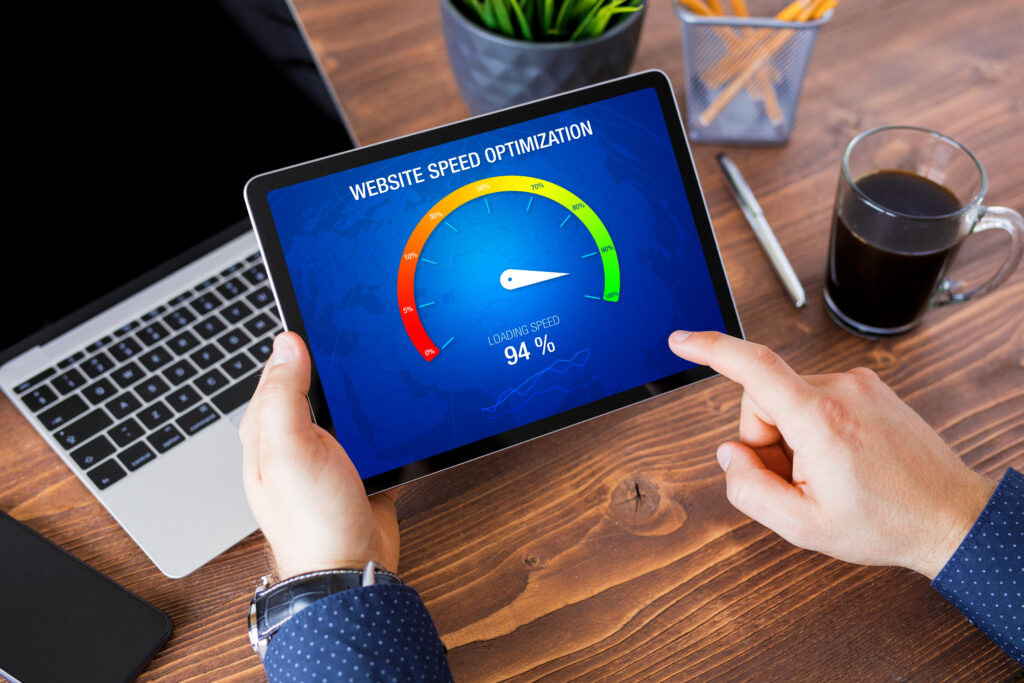In our digital age, a reliable internet connection is essential for everything from work to entertainment. Often, people wonder, "How can I test my speed accurately?" Testing your internet speed can ensure that you are getting the performance promised by your service provider and detect any issues that might be affecting your experience. This article will explain how to test your internet speed, why it's important, and how tools like the Speakeasy Speed Test can help.
Why Should You Test Your Internet Speed?
1. Verify Your ISP's Claims
Internet Service Providers (ISPs) often promote high-speed internet plans with specific bandwidth. By conducting a speed test, you can verify that you are receiving the speeds that you are paying for. Tools like the Speakeasy Internet Speed Test provide a straightforward way to check this.
2. Troubleshoot Connectivity Issues
Sluggish internet can arise from various issues, such as hardware malfunctions, network congestion, or ISP throttling. Running a continuous speed test helps to pinpoint the problem's origin and offers a baseline for diagnosing these issues.

3. Optimize Your Network for Different Activities
Whether you're streaming videos, gaming, or working from home, different activities require different internet speeds. Performing a Speakeasy Bandwidth Test helps you understand your current bandwidth and decide if you need more speed for a seamless experience.
4. Assess Network Changes
If you've recently upgraded your plan, changed your router, or altered your network configuration, an internet speed test will confirm if these changes have positively impacted your connection.
How to Test My Speed Effectively
1. Use Reliable Tools
There are many tools available for speed testing, but using a reputable one is crucial to getting accurate results. The Speakeasy Speed Test is a reliable choice, known for its consistency and dependability.
2. Close Unnecessary Applications
Before running the test, close any applications or devices that might be consuming bandwidth. This ensures a more accurate reflection of your connection's true performance.
3. Run Multiple Tests
Internet speeds can fluctuate throughout the day due to network congestion. Running multiple tests at different times will give you a more comprehensive view of your internet speed.
4. Consider Ethernet for Accuracy
Wi-Fi connections can be affected by interference and signal strength. For the most accurate results, run your speed test through an Ethernet-connected device.
Frequently Asked Questions
What is the Speakeasy Speed Test?
The Speakeasy Speed Test is an online tool that measures your internet speed by assessing your download and upload rates. It's particularly valued for its accuracy and ease of use.
How often should I test my speed?
It's advisable to perform regular speed tests, especially if you experience fluctuations in your internet performance or have upgraded your plan recently.
What do download and upload speeds mean?
Download speed measures how quickly data is transferred from the internet to your device, while upload speed measures how quickly data is sent from your device to the internet. Both are crucial for overall internet performance.
Can a speed test detect Wi-Fi issues?
Yes, by comparing the results of a speed test over Wi-Fi and a direct Ethernet connection, you can identify if Wi-Fi issues are affecting your internet speed.

Internet Technology Advisor: FAQ Article on "Test My Speed"
How can I test my internet speed at home?
Testing your internet speed at home is a straightforward process. Here's a step-by-step guide:
1. Choose a Speed Test Tool:
Select a reputable speed test tool (more on this in subsequent questions).
2. Connect to Your Network:
Ensure your device is connected to your home network. For the most accurate results, use a wired connection, but if you are testing Wi-Fi speeds specifically, be sure to connect to your preferred wireless network.
3. Close Background Applications:
Shut down any applications or devices that might be using the internet to get an accurate reading.
4. Run the Test:
Open the speed test tool and click the 'Start' or 'Go' button. The tool will measure your download speed, upload speed, and latency (ping).
Tips:
- It's advisable to run the test at different times of the day to get an average measurement, as speeds can fluctuate depending on network congestion.
- Make sure other devices aren't streaming or downloading large files during the test to avoid skewed results.
Why should I regularly test my internet connection speed?
Regularly testing your internet connection speed is important for several reasons:
1. Performance Monitoring:
By routinely checking your speeds, you can ensure that you are getting the service you are paying for from your ISP (Internet Service Provider).
2. Troubleshooting:
If you notice a lag or slow performance while streaming, gaming, or working from home, a speed test can help you identify whether the issue is with your internet connection.
3. Network Changes:
If you add new devices to your home network, a test can help you understand how these additions affect overall performance.
4. ISP Adjustments:
Sometimes ISPs might adjust speeds based on network conditions or service upgrades. Regular testing helps you stay informed of these changes.
What are the best tools to use for testing my internet speed?
There are several reliable tools available online that you can use to test your internet speed. Here are some of the best:
1. Ookla Speedtest:
One of the most popular speed testing services. Available as a web service and as an app for both Android and iOS.
2. Fast.com:
A simple speed test tool provided by Netflix. This tool is particularly good for testing streaming capabilities.
3. Google Speed Test:
Simply search "internet speed test" on Google, and you can use Google's built-in speed test.
4. SpeedOf.Me:
This tool uses HTML5 and provides a great visual representation of your speed over time.
5. Bandwidth Place:
Another reliable web-based speed test tool that's simple to use.
Ensure that the speed test server you're using is geographically close to you for more accurate results.
What does the result of my internet speed test mean?
Understanding the results of your internet speed test can help you better assess your internet connection. Here's a breakdown of the key metrics and what they mean:
1. Download Speed:
Measured in Mbps (Megabits per second), this indicates how fast data is transferred from the internet to your device. A higher number means faster downloads, which is critical for streaming, gaming, and browsing.
2. Upload Speed:
Also measured in Mbps, this indicates how quickly data is transferred from your device to the internet. Upload speed is essential for video calls, uploading files, and live streaming.
3. Ping (Latency):
Measured in milliseconds (ms), ping refers to the reaction time of your connection, or how fast you get a response after sending out a request. A lower ping is better and is especially important for activities like online gaming and real-time communications.
4. Jitter:
This measures the consistency of your ping over time. Low jitter values mean a stable connection, while high jitter can cause erratic performance, particularly troublesome for gaming and video conferencing.
Interpretation
Good Download Speeds:
Generally, anything above 25 Mbps is good for standard internet usage. Heavy users or multiple users might require higher speeds.
Good Upload Speeds:
For most users, 3 Mbps is sufficient, but higher speeds are better for uploading large files or high-quality video conferencing.
Low Ping:
Values below 50 ms are considered excellent, while anything under 100 ms is good for most applications.
If your results consistently fall below what your ISP advertises, it's a good idea to contact them for support or consider upgrading your plan.
By using these guidelines, you can ensure you're making the most out of your internet connection. Stay informed, stay connected!
Testing your internet speed is a simple yet powerful way to ensure you receive optimal performance from your internet connection. By using tools like the Speakeasy Speed Test, you can verify your ISP's claims, troubleshoot issues, and optimize your network for various activities. Regularly running a continuous speed test can help you stay on top of any changes or disruptions in your service. So, the next time you ask yourself, "How can I test my speed?" you'll know exactly what to do and why it's essential.






